You’ve got money. You’ve got bills. You’ve got rent, school fees, maybe even a business running on your account. And now you’re wondering: which is the safest bank in Dubai? It’s not just about interest rates or branch locations. It’s about knowing your cash won’t vanish overnight - especially in a city where money moves fast and regulations change often.
Let’s cut through the noise. There’s no single “safest” bank that fits everyone. But there are clear winners when you look at what actually matters: government backing, global ratings, digital security, and how they handle customer money. And yes - we’ve checked the latest data from Moody’s, S&P, and the Central Bank of the UAE to make sure this isn’t just opinion.
Who’s Actually the Safest?
If you’re asking this question, you’re not alone. In 2025, First Abu Dhabi Bank (FAB) stands as the most secure bank in Dubai - and the entire UAE. Why? Because it’s not just big; it’s built to last. FAB holds the highest credit rating in the region: A1 from Moody’s and A+ from S&P. That’s the same tier as top banks in Singapore and Switzerland. It’s also the largest bank in the UAE by assets, with over AED 1.1 trillion under management. That kind of scale means deep buffers, strict internal controls, and a government that treats it like a pillar of the national economy.
But here’s what most people miss: safety isn’t just about size. It’s about how the bank handles risk. FAB’s loan loss provisions are among the lowest in the region - meaning they’re not gambling with your deposits. Their digital systems are ISO 27001 certified, and they’ve had zero major data breaches in the last five years. That’s rare.
Why Safety Matters More Than You Think
Think about your bank like your front door. You don’t just want a lock - you want a lock that’s been tested by experts, inspected regularly, and backed by a company that won’t cut corners. In Dubai, the Central Bank of the UAE (CBUAE) protects deposits up to AED 1 million per person per bank. That’s a safety net. But here’s the catch: if your bank is poorly managed, even that guarantee can feel shaky if the bank collapses.
Remember 2008? Global banks failed. In Dubai, some smaller lenders struggled after the property crash. Those that survived were the ones with strong capital reserves and conservative lending. Today, the banks that made it through that crisis are still the ones leading in safety. You don’t want to be the customer who learns the hard way that “it’s just a small bank” means “no backup plan.”
The Top 5 Safest Banks in Dubai (2025)
Here’s who’s actually safe - not just popular - based on the latest financial reports, regulatory scores, and customer trust data:
- First Abu Dhabi Bank (FAB) - Largest, highest-rated, most stable. Best for long-term security.
- Emirates NBD - Strong digital platform, solid capital ratios. Popular with expats and businesses.
- Abu Dhabi Commercial Bank (ADCB) - Conservative lending, strong government ties. Low risk, low drama.
- Standard Chartered Dubai - Global bank with deep UAE roots. Excellent fraud protection and 24/7 monitoring.
- Dubai Islamic Bank (DIB) - Sharia-compliant, fully regulated, zero interest-based lending. Surprisingly low default rates.
These five banks handle over 85% of all personal and business banking in Dubai. The rest? Smaller players, niche lenders, or foreign branches with limited local backing. Not necessarily bad - but if safety is your top priority, stick with the top five.
What Makes a Bank Safe? The Real Rules
Don’t fall for flashy apps or free transfers. Real safety has five pillars:
- Capital Adequacy Ratio (CAR) - Banks need at least 14% under CBUAE rules. Top banks here hit 18-22%. That’s your cushion if loans go bad.
- Non-Performing Loans (NPLs) - Below 2% is excellent. FAB and ADCB hover around 1.3%. Anything over 4%? Red flag.
- Global Credit Rating - Look for A- or higher from S&P or Moody’s. If it’s below BBB+, walk away.
- Digital Security - Two-factor authentication? Biometric login? Real-time fraud alerts? If they don’t offer these, they’re behind.
- Government Backing - Banks with UAE government stakes (like FAB, ADCB) are treated like systemically important institutions. They get help if things go wrong.
Check your bank’s annual report. It’s public. Look for “Capital Adequacy” and “Asset Quality” sections. You don’t need to be an expert - just spot the numbers.
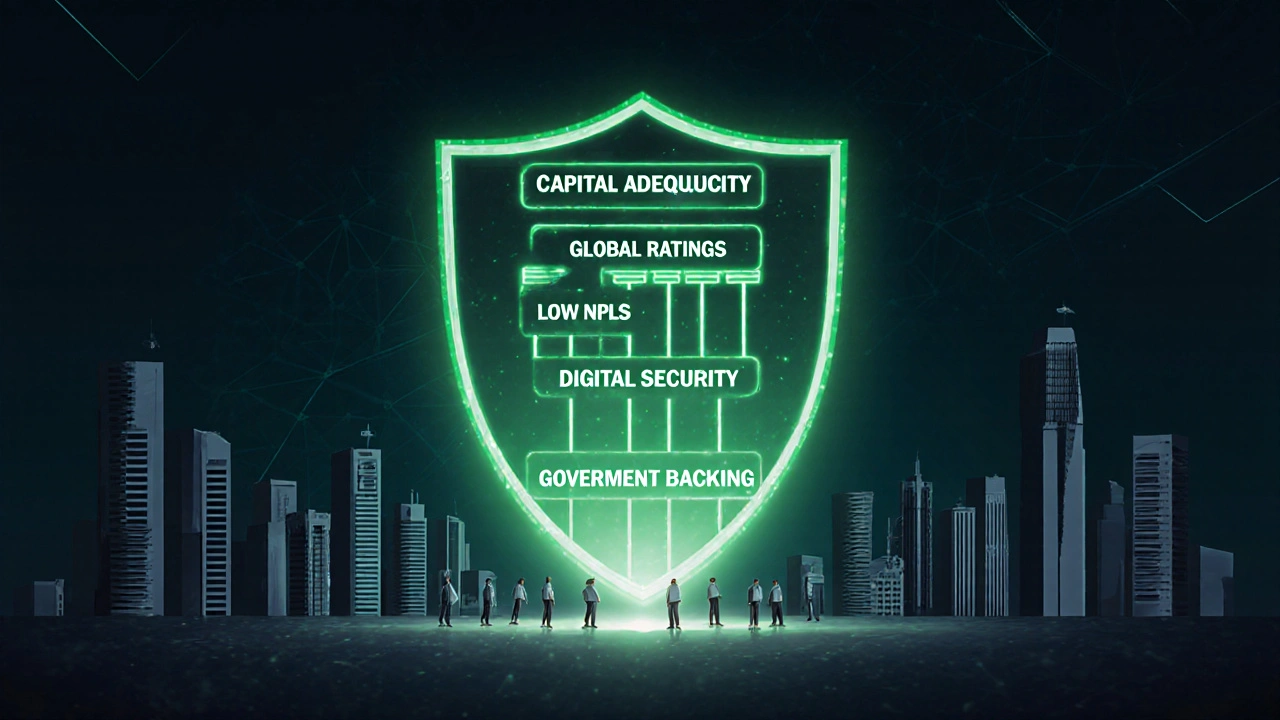
How to Check Your Bank’s Safety Right Now
You don’t need to wait for a report. Here’s how to check your bank’s safety in under 5 minutes:
- Go to centralbank.ae - the official UAE central bank site.
- Click “Supervised Institutions” - you’ll see a list of all licensed banks.
- Find your bank. Next to it, you’ll see its risk category: Low, Medium, High.
- Look for “Capital Adequacy Ratio” - if it’s below 14%, consider moving.
- Search “
+ credit rating” on Google. If nothing comes up, or it’s below A-, that’s a warning.
Also, check your mobile app. If you can’t enable fingerprint or face unlock for login, or if there’s no option to freeze your card instantly - that’s a red flag. Top banks let you do all this in two taps.
FAB vs. Emirates NBD: The Real Showdown
Most people pick between FAB and Emirates NBD. Here’s how they really compare:
| Feature | First Abu Dhabi Bank (FAB) | Emirates NBD |
|---|---|---|
| Global Credit Rating | A1 (Moody’s), A+ (S&P) | A2 (Moody’s), A (S&P) |
| Capital Adequacy Ratio | 21.4% | 19.1% |
| Non-Performing Loans | 1.3% | 1.8% |
| Digital Security | ISO 27001, AI fraud detection | ISO 27001, biometric login |
| Deposit Insurance Coverage | AED 1 million (CBUAE) | AED 1 million (CBUAE) |
| Best For | Long-term security, large balances, corporate clients | Expats, mobile users, rewards programs |
FAB wins on pure safety. Emirates NBD wins on convenience and customer experience. If you have AED 500,000+ saved up, FAB is the calmer choice. If you’re always on the go and want a slick app, Emirates NBD won’t let you down.
What About Islamic Banks?
Some people avoid interest-based banks. That’s fine - and Dubai’s Islamic banks are just as safe. Dubai Islamic Bank (DIB) is the largest Islamic bank in the UAE. It doesn’t lend with interest - it uses profit-sharing models. That means less risk from speculative loans. DIB’s NPLs are at 1.5%, and its capital ratio is 20%. It’s also fully regulated by CBUAE and has the same deposit guarantee as any other bank.
Bottom line: Islamic banks aren’t “less safe.” They’re just structured differently. And for many, that’s a plus.
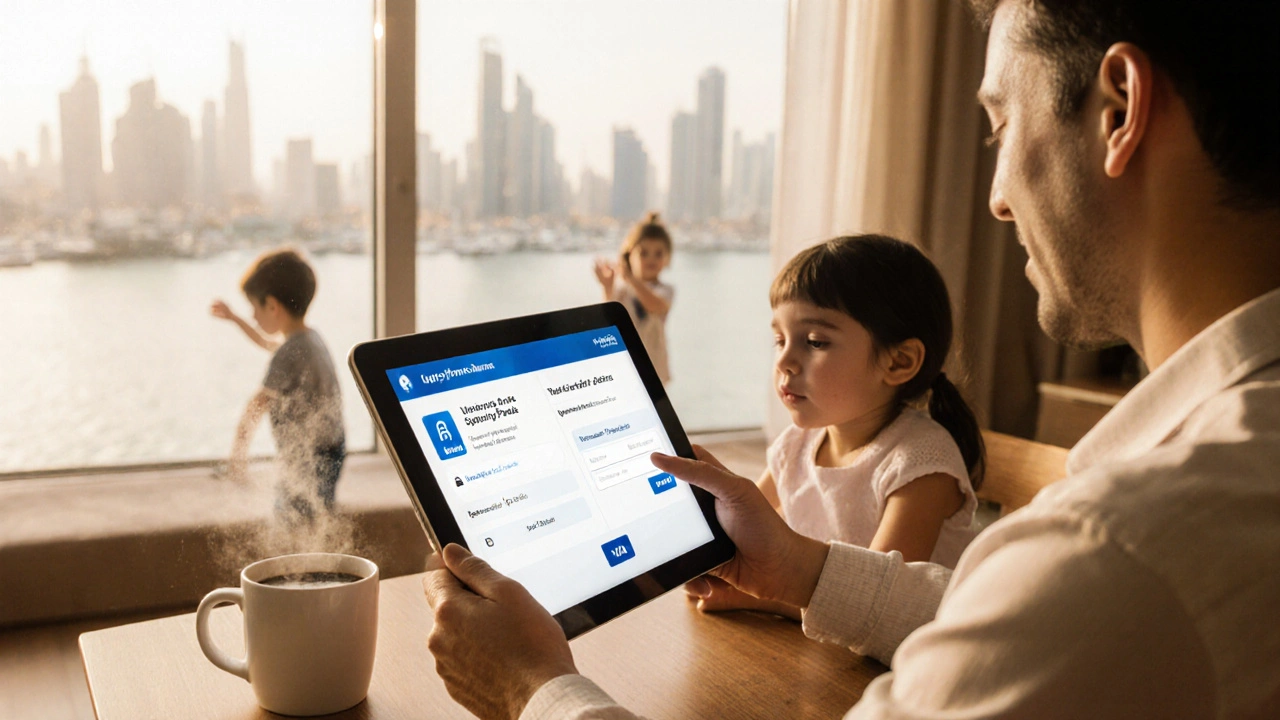
Red Flags: When to Run
Not all banks are created equal. Here’s when to walk away:
- Your bank has no public credit rating - or it’s below BBB+.
- You can’t find their annual financial report online.
- They don’t offer two-factor authentication on their app.
- They’ve had multiple customer complaints about frozen accounts or lost transactions.
- They’re not on the CBUAE’s list of licensed institutions.
If any of these are true - even if they offer 5% interest - move your money. No return is worth losing your savings.
What Should You Do Next?
Don’t overthink it. Here’s your action plan:
- Check which bank you’re with right now.
- Look up its capital adequacy ratio and credit rating (use the CBUAE site or Google).
- If it’s not FAB, Emirates NBD, ADCB, Standard Chartered, or DIB - consider switching.
- Transfer your salary to the new account. Keep the old one open for 30 days - then close it.
- Enable all security features: biometric login, transaction alerts, card freezing.
It takes less than an hour. And if you’ve got kids, a mortgage, or a business - this is one of the smartest things you’ll do this year.
Frequently Asked Questions
Is my money safe in Dubai banks?
Yes - if you bank with a licensed institution. The Central Bank of the UAE guarantees deposits up to AED 1 million per person per bank. Only banks on their official list are covered. Always verify your bank is licensed at centralbank.ae.
Which bank has the best security features?
First Abu Dhabi Bank leads in security with AI-powered fraud detection, ISO 27001 certification, and real-time transaction monitoring. Emirates NBD and Standard Chartered are also strong, with biometric logins and instant card freezing.
Are Islamic banks safer than regular banks?
They’re equally safe. Dubai Islamic Bank (DIB) has the same regulatory oversight and deposit protection as any other major bank. Their profit-sharing model reduces exposure to risky lending, making them a solid, low-risk option.
Can I open a bank account in Dubai as a foreigner?
Yes. You need a valid passport, UAE residency visa, and proof of address. Most top banks accept expats. FAB and Emirates NBD have dedicated expat services. Some require a minimum deposit of AED 3,000-5,000.
What happens if a bank fails in Dubai?
The Central Bank of the UAE steps in immediately. Deposits up to AED 1 million are protected by law. In practice, the government often arranges a takeover by a stronger bank - like what happened with Dubai Islamic Bank’s acquisition of smaller institutions in 2020. Your money stays secure.
Final Thought
Safety isn’t glamorous. You won’t see ads for it. But it’s the quiet foundation of everything else - your peace of mind, your family’s future, your business’s stability. In Dubai, where money flows like the desert wind, the safest banks are the ones you’ve never heard screaming for attention. They’re the ones with strong numbers, quiet confidence, and a track record that doesn’t need hype.
Choose wisely. Your future self will thank you.

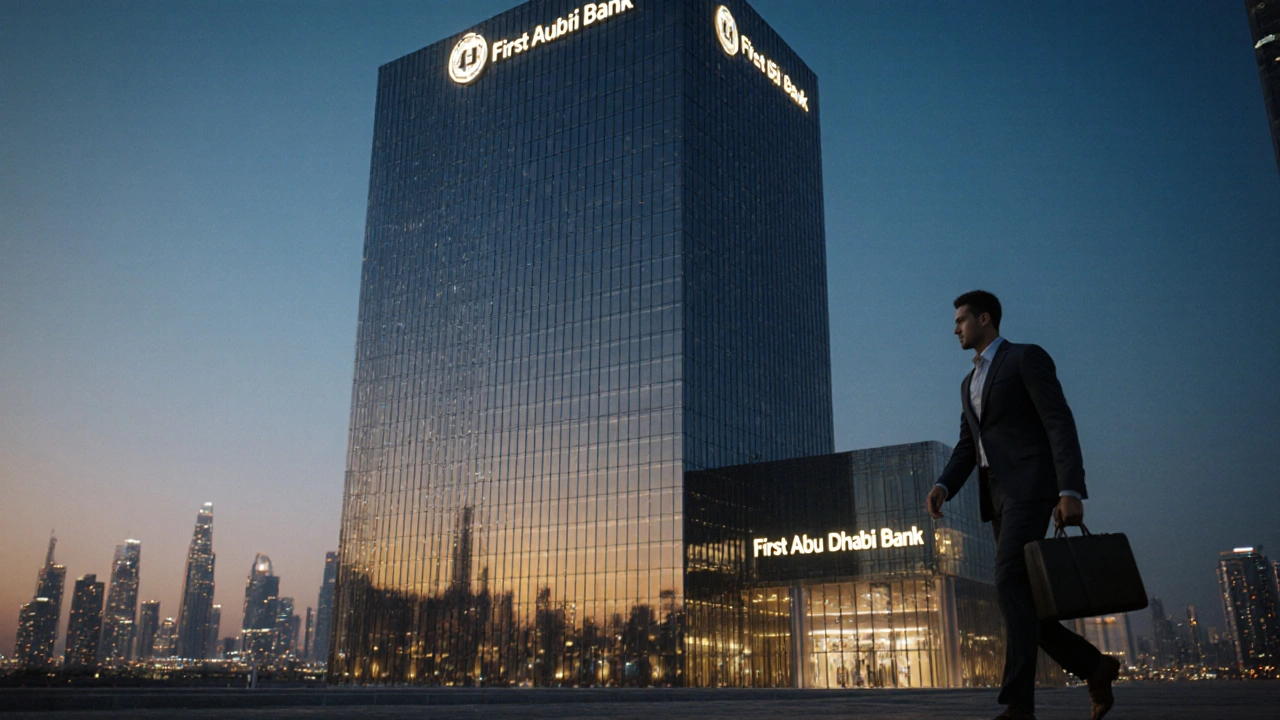

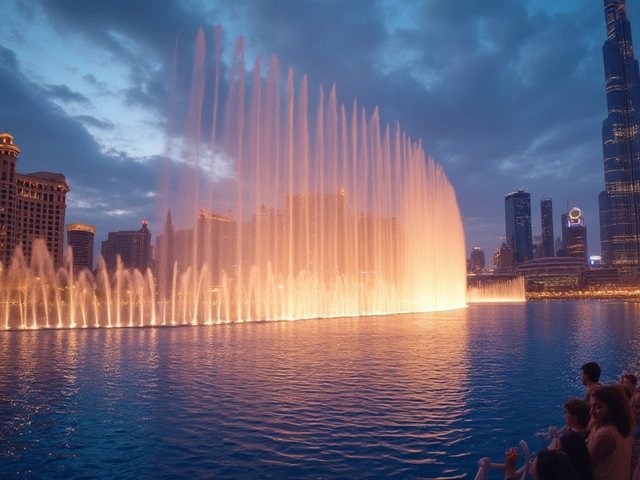
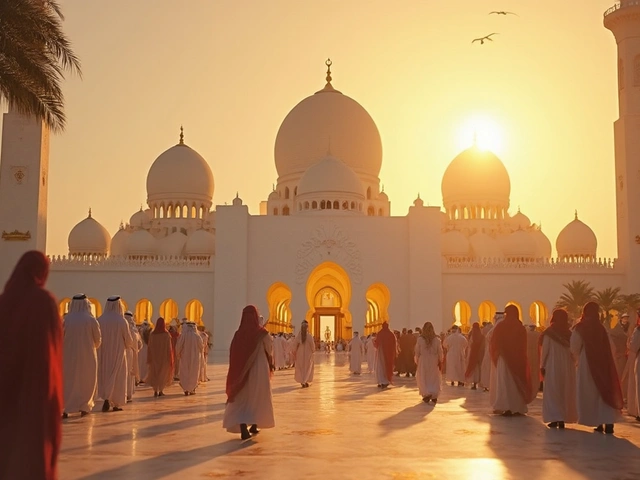
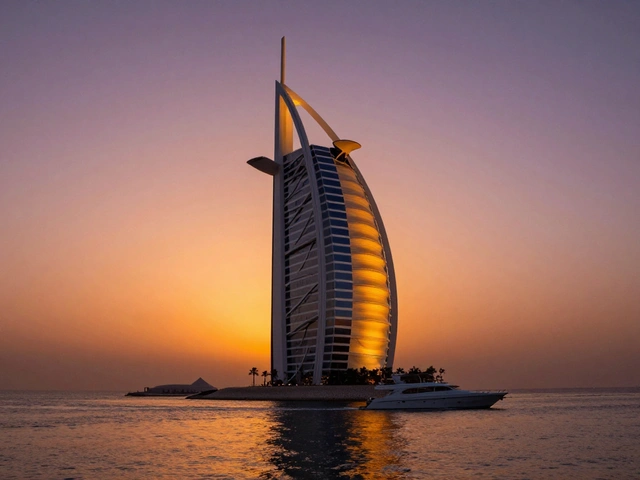
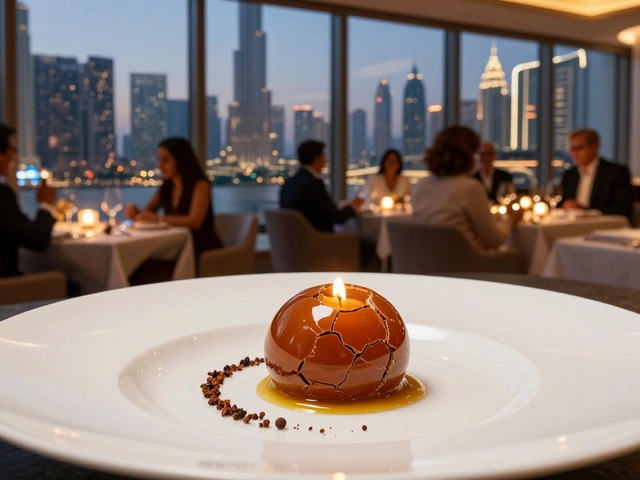
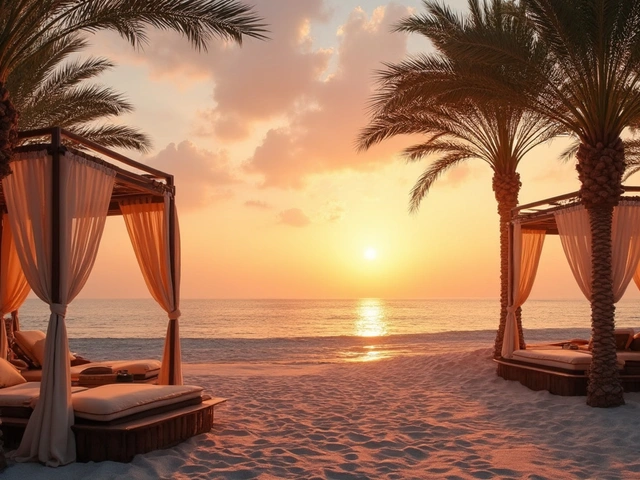
Helen Chambers
November 7, 2025 AT 18:36This is the kind of post that makes me want to hug my bank account 😭💖 Thank you for breaking it down like this - I literally just moved my salary to FAB after reading this. No more stress about my savings vanishing like last year’s Dubai New Year fireworks! 🎆
Lisa Kulane
November 8, 2025 AT 11:07While FAB’s ratings are indeed impressive, one must consider the geopolitical risk inherent in any GCC-based institution. The A1 rating is a product of state-backed liquidity, not market discipline. In a crisis, sovereign intervention is not a feature - it’s a bailout dependency. True financial resilience is demonstrated by institutions that survive without state guarantees - and none of these banks qualify.
Moreover, the Central Bank’s deposit insurance cap of AED 1 million is arbitrary and insufficient for high-net-worth individuals. This is not safety - it’s regulatory theater. The real risk lies in systemic concentration: over 85% of assets controlled by five institutions creates a single point of failure that would collapse the entire UAE economy if one of them were to falter.
Furthermore, the emphasis on ISO 27001 certification is misleading. Certification is a checkbox exercise. Actual penetration testing results are never disclosed. The absence of public breach reports does not equate to security - merely opacity.
And let’s not forget: the UAE’s banking sector is still tethered to a rentier economy built on oil and expatriate labor. This is not a financial system - it’s a tax haven with ATMs.
Rob e
November 9, 2025 AT 17:46Wait… so you’re telling me the government won’t let my bank collapse? 😏 That’s cute. But what if they’re lying? What if the ‘ratings’ are cooked? I’ve seen the videos - the Central Bank is run by guys in white robes who never show their faces. And why is FAB so big? Because they bought up all the smaller ones… and now they’re too big to fail. Classic. 🤨
Also - did you know that 70% of ‘foreign’ deposits in Dubai are actually from Russian oligarchs? And if they pull out? Poof. Your ‘safe’ bank becomes a ghost town. I’d rather keep my cash under the mattress. At least the mattress doesn’t have a CEO who answers to Abu Dhabi.
Devon Rooney
November 10, 2025 AT 10:34Let’s clarify some terminology here: Capital Adequacy Ratio (CAR) is a Basel III metric, and the 18–22% range cited is well above the 10.5% minimum, indicating strong loss-absorbing capacity. Non-Performing Loans (NPLs) below 2% reflect prudent credit underwriting - particularly notable in a market with volatile real estate exposure.
ISO 27001 certification is not merely a marketing badge; it’s an audited, continuous improvement framework for information security management. The fact that FAB maintains zero major breaches over five years suggests operational maturity in threat modeling and incident response.
Additionally, the CBUAE’s risk categorization framework is transparent and updated quarterly. The ‘Low’ risk designation for top-tier banks is not arbitrary - it’s derived from stress test results, liquidity coverage ratios, and leverage ratios published in regulatory filings.
What’s often overlooked is that Dubai’s banking model is uniquely hybrid: it combines Western regulatory standards with Islamic finance principles, which inherently limit speculative leverage. This structural constraint contributes to systemic resilience.
For expats: the requirement for a residency visa to open an account is a compliance feature, not a barrier. It reduces money laundering risk and ensures accountability - a feature most Western banks would envy.
Caryn Guthrie
November 12, 2025 AT 04:15Okay but… FAB? Really? That’s the safest? I thought Emirates NBD was the one everyone used. Also, why is no one talking about how all these banks are basically owned by the same royal family? Like… isn’t that just one big family business with different logos?
And I checked my bank’s app - they have fingerprint login. So I’m safe, right? 🤷♀️
Caleb Avery
November 13, 2025 AT 06:35Finally - someone who gets it! 🔥 FAB is the only bank in Dubai that doesn’t treat you like a tourist with a credit card. I’ve been with them since 2019 - never had an issue, never had a delay, never had a ‘system error’ when I tried to pay my rent. And yes - they’ve got AI fraud detection that catches stuff before I even notice it. USA banks? Please. They still send you paper statements. 🇺🇸💀
Also - if you’re not using biometric login, you’re basically leaving your front door open. No excuses.
Jenna Carlson
November 15, 2025 AT 01:50Wait so you’re saying I should move my money just because some website says so? I’ve been with my bank for 10 years and they give me free coffee. That’s worth more than some fancy rating. Also, I don’t even know what CAR means. I just know my money’s there. 🤷♀️
Ajay Kumar
November 16, 2025 AT 05:09As someone who moved from India to Dubai in 2022, I can confirm that DIB’s Sharia-compliant model is not just religiously aligned - it’s financially conservative. No leverage, no derivatives, no speculative lending. Their NPLs are low because they only finance what’s tangible: property, equipment, trade. No gambling with your money.
Also, their mobile app is one of the cleanest I’ve used. Simple, secure, no pop-ups. And yes - the deposit guarantee is the same as FAB. You don’t need to be a financial expert to understand that.
Pro tip: Use the CBUAE’s supervised institutions list. It’s in English and Arabic. No need to guess.
Mike Healy
November 16, 2025 AT 18:39you know what they dont tell u?? the banks are all owned by the same guy who also owns the airport and the hotels and the palm islands?? its all one big pyramid scheme!! i saw a video on youtube where a guy said the central bank is just a front for a secret council that moves money between offshore accounts!! i think my account is being watched!! 😱
Melissa Bracewell
November 18, 2025 AT 07:28I just want to say thank you for writing this. I’m a single mom raising two kids here in Dubai, and I was terrified to move my savings anywhere after hearing stories about banks freezing accounts. This made me feel like I actually understand what’s going on - not just being told ‘trust us.’
I checked my bank’s CAR and it was 12%. I didn’t even know where to look. Now I’ve switched to Emirates NBD and turned on all the alerts. I even showed my 12-year-old how to freeze the card if something looks weird. It’s small, but it feels like a win.
You don’t need to be rich to be smart with money. You just need to know where to look. And you helped me find it.